West Michigan Neurodegenerative Diseases (MiND) Program
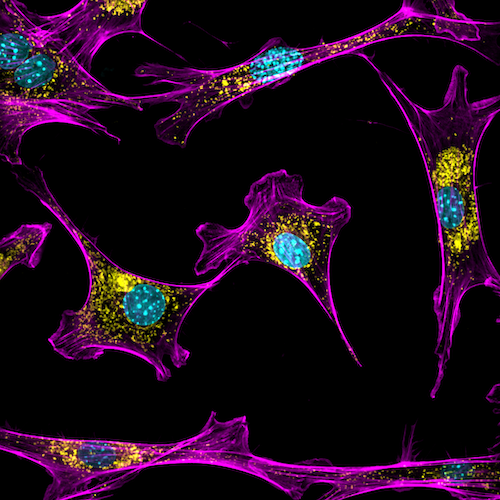 Van Andel Institute’s West Michigan Neurodegenerative Diseases (MiND) Program is a collaborative effort to identify genetic and epigenetic changes that may play roles in neurodegenerative diseases, such as Parkinson’s and dementias. Our goal? To move the needle in our understanding of these diseases, power new discoveries and leverage our findings to inform groundbreaking treatment strategies.
Van Andel Institute’s West Michigan Neurodegenerative Diseases (MiND) Program is a collaborative effort to identify genetic and epigenetic changes that may play roles in neurodegenerative diseases, such as Parkinson’s and dementias. Our goal? To move the needle in our understanding of these diseases, power new discoveries and leverage our findings to inform groundbreaking treatment strategies.
The program is led by Darren Moore, Ph.D., chair of VAI’s Department of Neurodegenerative Science.
Questions?
Please contact MiND Program Manager Erin Williams, Ph.D., at [email protected].
Explore the MiND Program
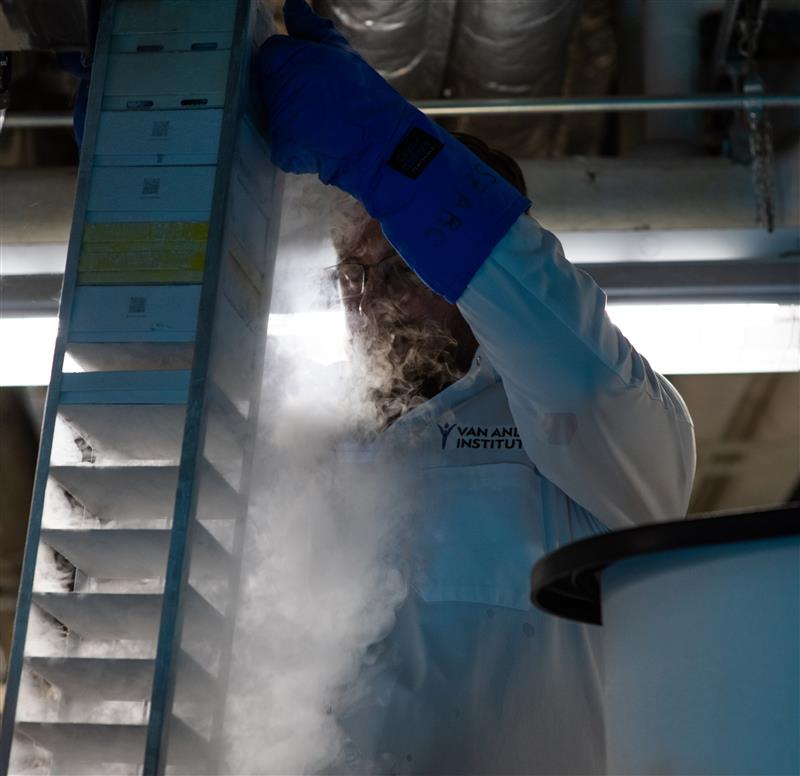
Blood Biorepository
The MiND Biorepository houses donated blood from people with and without neurodegenerative diseases. These vital samples help scientists search for biological clues related to disease.
Learn More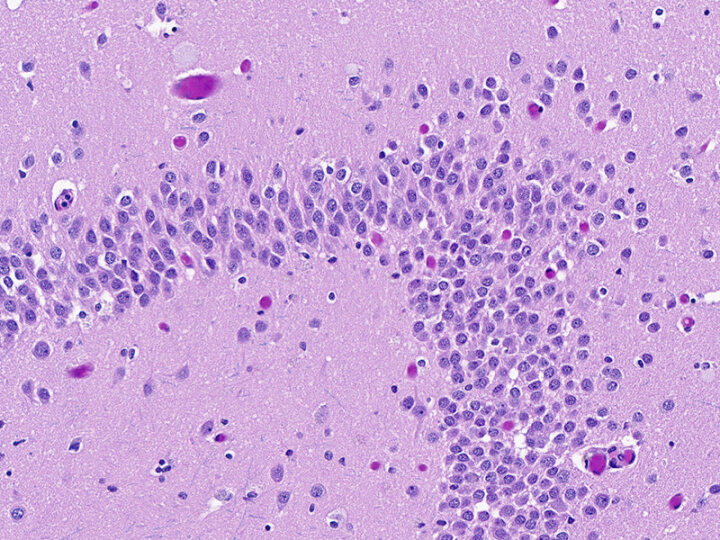
VAI Brain Bank
Located within VAI’s accredited Biorepository, the Brain Bank drives insight and discovery by providing scientists the samples needed to investigate the underpinnings of Parkinson’s, dementias and other neurodegenerative diseases.
Learn More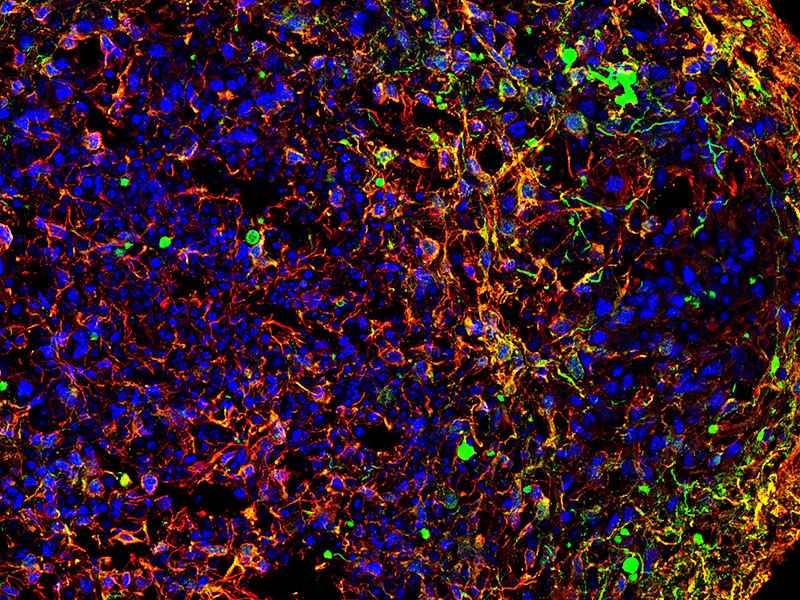
iPSC Platform
The MiND Program’s state-of-the-art iPSC Culture and High-Content Screening Platform employs powerful technology to investigate the roots of neurodegeneration.
Learn More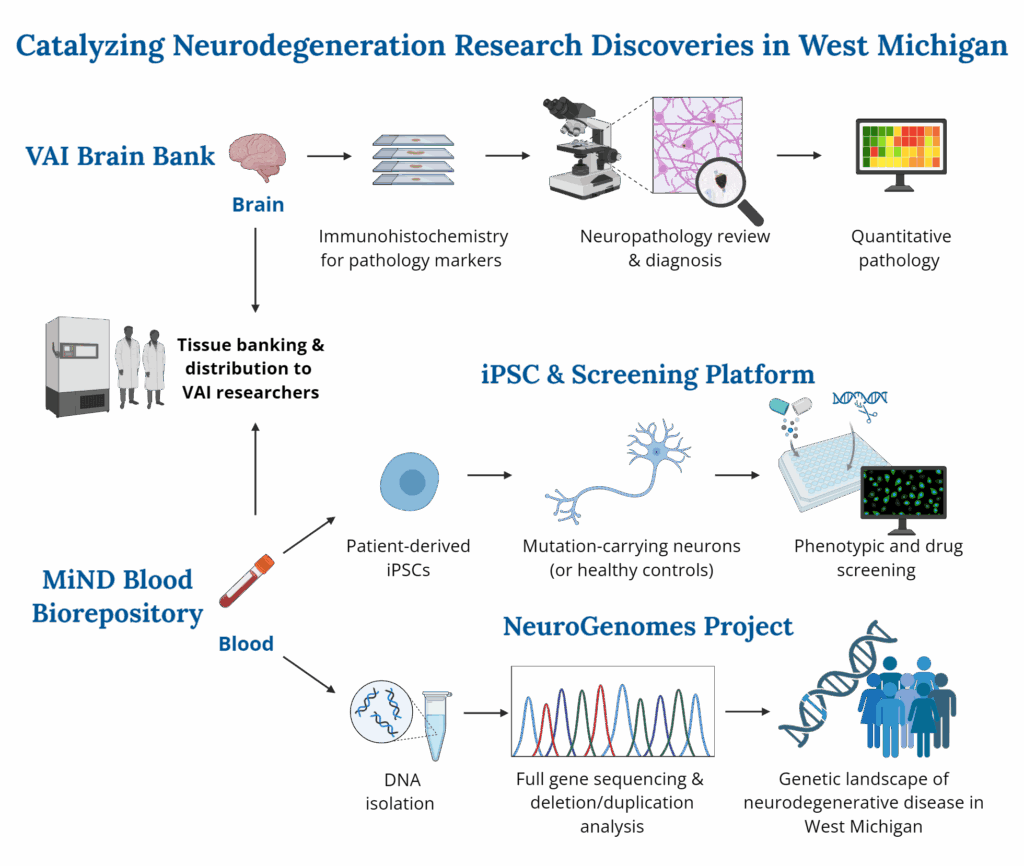
Funding for Collaborative Research
Collaboration is at the heart of VAI’s mission to support groundbreaking, life-changing science. To this end, the MiND Program is pleased to offer funding to VAI scientists in support of early-stage collaborative research projects, with an emphasis on screening and pilot studies.
Pathway-to-Independence Awards
As part of our commitment to training the next generation of scientists, we are pleased to offer our Pathway-to-Independence Award, which will provide funding to selected senior postdoctoral fellows at VAI to further develop their careers. The program will award two grants each year, which will provide up to two years of project support under the guidance of their mentor.
MiND Team Members

Darren Moore, Ph.D.
Chair and Professor, Department of Neurodegenerative Science; Director, MiND Program; Jay Van Andel Endowed Chair in Parkinson’s Disease Research
Molecular Neurodegeneration

Erin Williams, Ph.D.
Research Program Manager, MiND
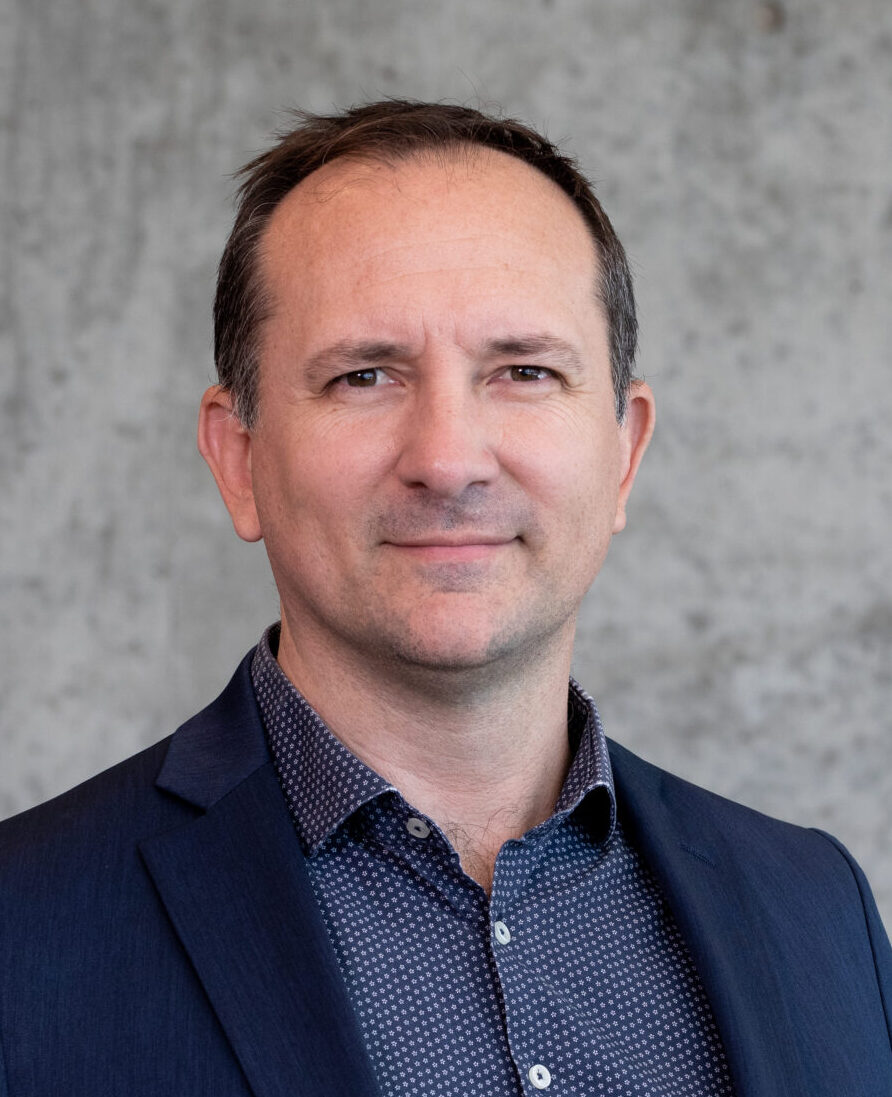
Laurent Roybon, Ph.D.
Associate Professor, Department of Neurodegenerative Science; Director, MiND iPSC Platform
Patient-Based Models of Neurodegenerative Diseases

Michael Henderson, Ph.D.
Associate Professor, Department of Neurodegenerative Science; Director, VAI Brain Bank
Protein Pathologies and Genetic Risk in Neurodegeneration
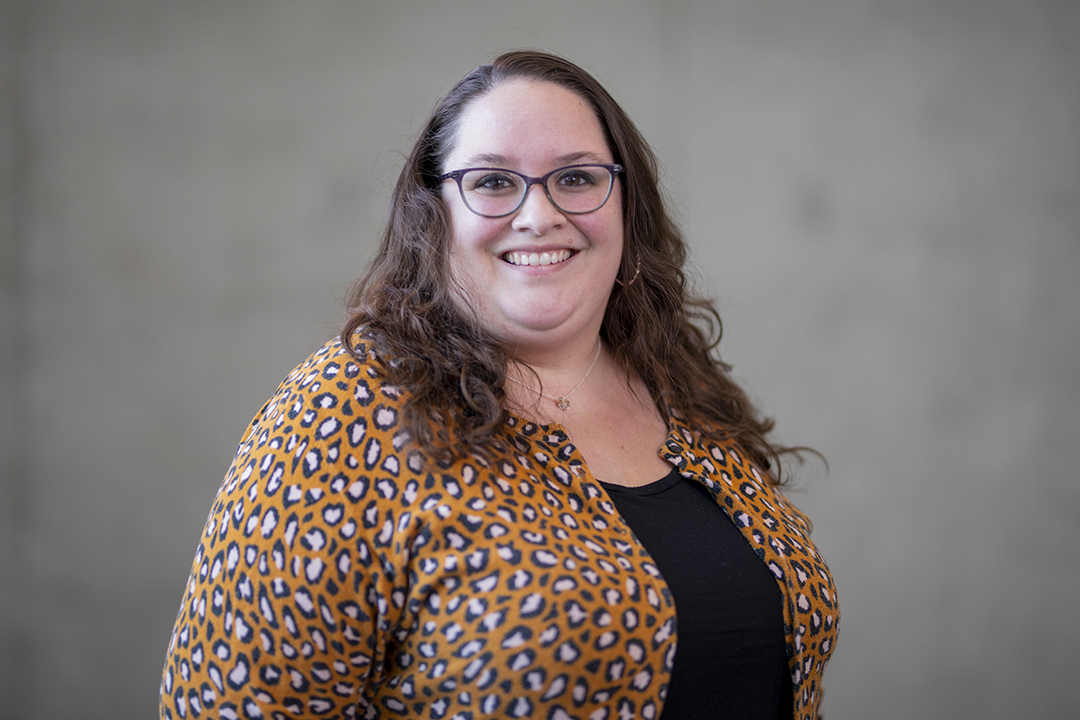
Jamie Durst, B.S.
Senior Administrative Assistant II, Department of Neurodegenerative Science
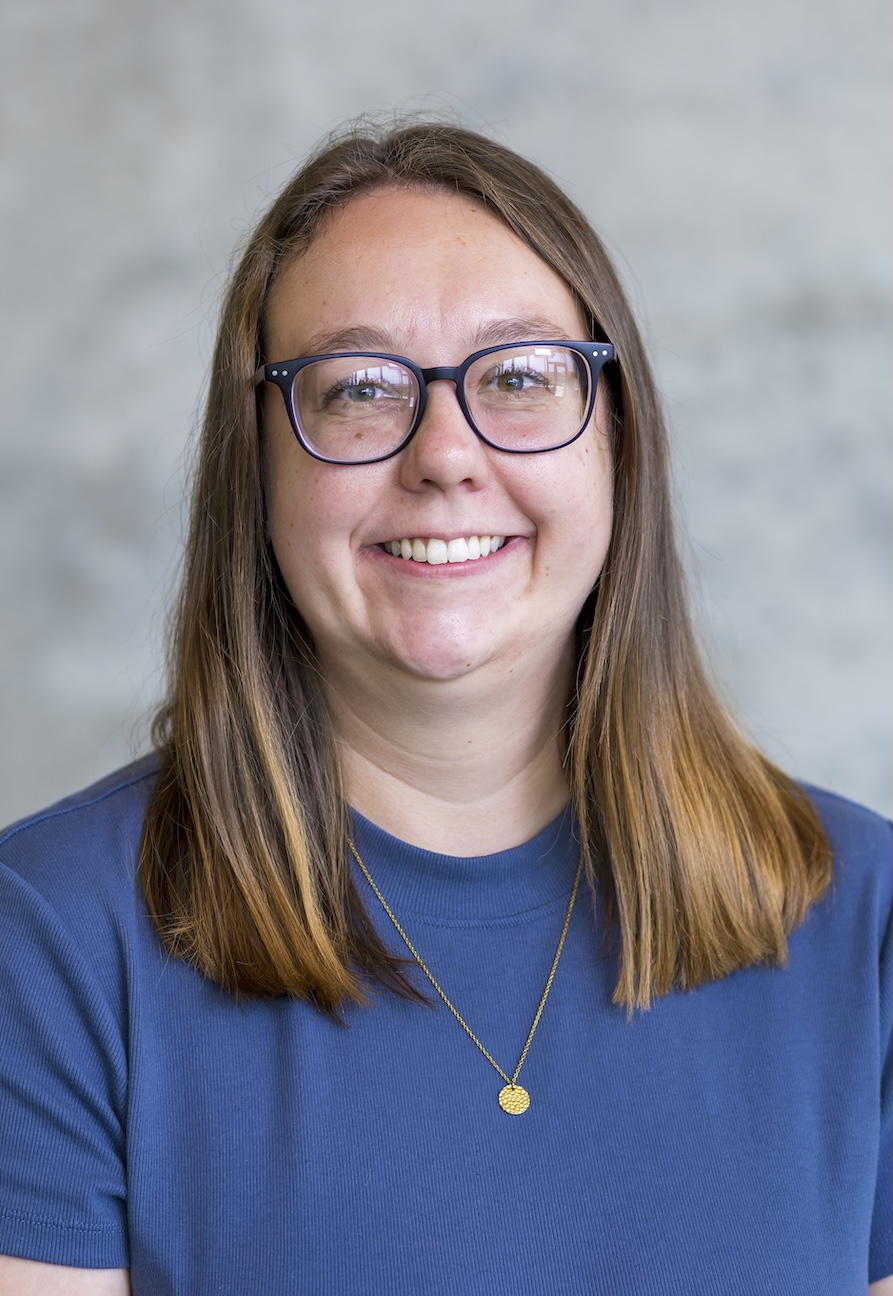
Olivia Licari
Research Technician, MiND Program

Alyssa Johansson, BFA, HT (ASCP)
Histotechnologist, Pathology and Biorepository Core
MiND Biorepository and NeuroGenomes Project
The fingerprints of diseases such as Parkinson’s and dementias may be found in our DNA, in molecules related to cellular signaling or in the proteins that carry out every function in our bodies. In the NeuroGenomes Project, VAI scientists seek to sleuth out these vital clues by analyzing blood samples from donors in West Michigan in search of molecular changes that signal disease. The results of this initiative could provide critical insights into the roots of neurodegeneration within the West Michigan community.
Donated blood is stored in the MiND Biorepository, which is housed in the Institute’s accredited Biorepository. Informed consent is obtained through our clinical partners. Donors remain anonymous.
This important work would not be possible without the selfless sample donations and support of people in the West Michigan community.
We are pleased to collaborate with Corewell Health, Trinity Health and University of Michigan Health-West on this project.
For clinical questions, please contact VAI’s Translational Research Project Management Team at [email protected].
VAI Brain Bank
The VAI Brain Bank houses donated brains from people with and without neurodegenerative diseases. Located within VAI’s accredited Biorepository, the Brain Bank drives insight and discovery by providing scientists the samples needed to investigate the underpinnings of Parkinson’s, dementias and other neurodegenerative diseases.
What is a biobank?
A biobank is a collection of biological samples organized in a systematic way. These samples are vital for understanding health and disease because they allow scientists an important window into physical changes caused by disease.
Where do samples come from?
The brains in the VAI Brain Bank come from individuals who have generously chosen to donate their brains after their passing to support scientific discoveries. To this end, we have partnered with LifeNet Health, an organ procurement organization and a leader in regenerative medicine and life sciences.
Informed consent is obtained through LifeNet Health. Donors remain anonymous.
Questions?
Please contact MiND Program Manager Erin Williams, Ph.D., at [email protected].
Induced Pluripotent Stem Cell and High-Content Screening Platform
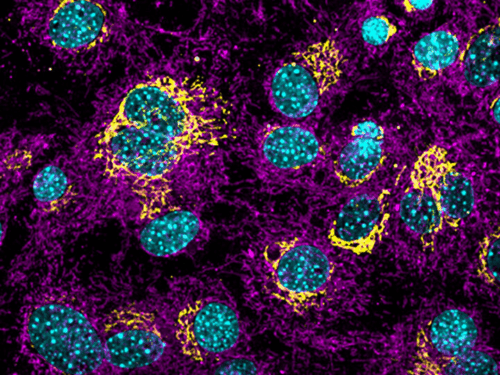 Stem cells are biological “blank slates” that give rise to all the specialized cell types needed to assemble and power the human body, from skin cells to heart cells and everything in between. One of their many important jobs is to maintain the body throughout life by replacing dead cells and rejuvenating damaged tissues.
Stem cells are biological “blank slates” that give rise to all the specialized cell types needed to assemble and power the human body, from skin cells to heart cells and everything in between. One of their many important jobs is to maintain the body throughout life by replacing dead cells and rejuvenating damaged tissues.
Induced pluripotent stem cells (iPSCs) are cells derived from blood or skin cells that are “reprogrammed” in the lab to return to their earlier, undifferentiated state. From there, they can be coaxed to become other types of cells, making them powerful tools for scientists. For example, using iPSCs, scientists can generate living brain cells in the lab — allowing them to see first-hand the mechanisms underlying neurodegeneration.
As a part of this platform, we built and furnished a state-of-the-art iPSC cell culture laboratory for VAI investigators working to answer a neurodegeneration-related question with iPSC technology. We also provide access to nearly 100 curated and validated iPSC lines for neurodegeneration research. Additionally, we have a robotic and fully automated high-content imaging system to perform high-throughput screening on living brain cells (iPSC-derived through reprogramming) to understand the mechanisms behind neurodegeneration at the molecular level.
Equipment
- ImageXpress Confocal HT.ai (Molecular Devices): Laser-based, high-resolution spinning disc confocal microscope set up for plate-based immunofluorescent cellular assays
- Biomek i7 Hybrid Liquid Handler (Beckman Coulter): 96-well and Span-8 pipette heads configured for automated pipetting with robotic arms for plate movement
- AquaMax4000 Microplate Washer (Molecular Devices): Self-contained system compatible with 96- and 384-well plates intended to automatically wash, soak and aspirate plates
- LiCONiC STX44 Automated CO2 Incubator (LiCONiC): 44-microplate incubator compatible with and accessible by plate-loading robot
- PreciseFlex PF400 Plate Loading Robot (Brooks Automation): Robotic arm capable of lidding and delidding plates and transferring plates to/from all components of the HCI system
For questions, please contact MiND Program Manager Erin Williams, Ph.D., at [email protected].

-
Acknowledgments and Authorship
All work supported by the MiND Program — including Pathway-to-Independence awards, Pilot awards and use of MiND Program resources — should be acknowledged or considered for co-authorship in scholarly reports, presentations, posters, papers and all other publications.
Example acknowledgements
Pathway-to-Independence Award
…”[author] (or This work) is supported by a Van Andel Institute West Michigan Neurodegenerative Diseases (MiND) Program Pathway-to-Independence Award (award number)”Pilot Award
This work was supported by a MiND Pilot award (award number) from Van Andel Institute’s West Michigan Neurodegenerative Diseases (MiND) Program …Brain Bank
This research was supported in part by the Van Andel Institute Brain Bank (RRID:SCR_026035) …Blood Samples
This research was supported in part by Van Andel Institute’s West Michigan Neurodegenerative Diseases (MiND) Program Blood Biorepository (RRID:SCR_027513) …iPSC and Screening Platform
This research was supported in part by Van Andel Institute’s West Michigan Neurodegenerative Diseases (MiND) Program iPSC and Screening Platform (RRID:SCR_027675)… -
Publications
Kasen A, Lövestam S, Breton L, Meyerdirk L, McPhail JA, Piche K, Louwrier A, Capan CD, Lee H, Scheres SH, Henderson MX. 2025. Seed structure and phosphorylation in the fuzzy coat impact tau seeding competency. Nat Commun 16(1).
*Use of tissue from VAI Brain BankDues DJ, Erb ML, Kasen A, Vatsa N, Williams ET, Tran Nguyen AP, Henderson MX, Moore DM. 2025. Pathological α-synuclein elicits granulovacuolar degeneration independent of tau. Transl Neurodegen.
*Use of tissue from VAI Brain Bank; use of iPSC and Screening PlatformMassari CM*, Dues DJ, Bergsma A, Sipple K, Frye M, Williams ET, Moore DM. 2024. Neuropathology in an α-synuclein preformed fibril mouse model occurs independent of the Parkinson’s disease-linked lysosomal ATP13A2 protein. Neurobiol Dis.
*Pathway-to-Independence Award recipient
Our Impact
We're raising thousands to save millions
We’re turning hope into action for the millions of people around the world affected by diseases like cancer and Parkinson’s. Find out how you can help us make a difference.
- 141 peer-reviewed papers published in 2025, 74 of which were in high-impact journals
- 15 VAI-SU2C Epigenetics Dream Team clinical trials launched to date
- 10 clinical trials and related projects supported by VAI through the International Linked Clinical Trials Program

